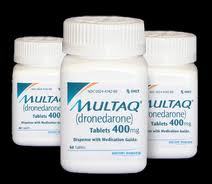As a Yaz, Yasmin and Ocella side effect and blood clot attorney, and Texas Medical doctor I am providing this update regarding the bellwether trial status for the New Jersey State MDL litigation trial schedule.
The first trial dates for any Yaz, Yasmin or Ocella lawsuits pending in New Jersey state court will begin in the fall of 2012, with at least two cases to be selected as test cases out of hundreds of claims pending in the state.
There are about 1,000 Yaz, Yasmin and Ocella product liability lawsuits pending in New Jersey state courts involving claims that women suffered serious or deadly injuries as a result of side effects of Yaz, Yasmin or Ocella birth control, containing the fourth-generation progestin drospirenone which are all manufactured by Bayer.
All of the suits involves claims that Bayer failed to properly research their birth control pills or adequately warn about the increased risk of serious and life-threatening injuries from the birth control pills containing drospirenone, causing stroke, heart attack, pulmonary embolism, and deep vein thrombosis.
According to a case management order issued July 8 by New Jersey Superior Court Judge Martinotti, the first Yaz trial in New Jersey state court should be ready to go before a jury on September 10, 2012. A second trial date has been set for November 27, 2012.
The parties have been directed to identify a pool of 18 cases that may be selected for an early trial date, known as bellwether cases. Judge Martinotti has asked each side to select three cases involving allegations of pulmonary embolism, three involving claims of gall bladder injury and three involving allegations of venous thromboembolism, such as a deep vein thrombosis (DVT).
In addition to the cases pending in New Jersey state court, more than 6,000 other cases are pending in federal court and other state court systems. The federal Yaz litigation has been centralized as part of a multidistrict litigation (MDL) before Judge Herndon in the U.S. District Court for the Southern District of Illinois.
At least three trial trial dates are anticipated in the federal MDL, one involving a pulmonary embolism, one involving a gallbladder injury and one involving a venous thromboembolism, with the first Yaz trial in federal court expected to begin early next year.
QUICK FACTS: YAZ LAWSUITS ALLEGATIONS
Throughout the United States, a number of Yaz birth control lawsuits have been filed against Bayer Healthcare Pharmaceuticals, Inc., which was formerly known as Berlex, Inc. and Berlex Laboratories, Inc., claiming that the drug makers:
Failed to adequately warn consumers and the doctors about the potential risk of Yaz side effects.
Failed to adequately test and research Yaz birth control before placing it on the market, which could have shown that patients would face an increased risk of heart attacks, strokes, pulmonary embolism, deep vein thrombosis and other life-threatening health problems.
Failed to issue a Yaz recall or remove the birth control pill from the market after it became apparent that it is an unreasonably dangerous drug, for which the harmful side effects outweigh any potential benefits provided over other available birth control pills.
Aggressively marketed Yaz and encouraged misuse and overuse despite the known Yaz dangers to maximize profits at the expense of patients’ health.
The drug makers had access to all the facts concerning the potential Yaz problems, and ignored the connection between their drug and deadly side effects. Yaz safety concerns were hidden and misrepresentations were made to to convince consumers and doctors to use the birth control pill instead of other available products. This increased the drug makers’ profits at the expense of women throughout the United States. Another example of corporations putting profits before people.
In complex litigation involving a large number of claims with similar underlying facts, early trials are useful in helping the parties gauge the strengths and weaknesses of their cases, and may help facilitate a possible Yaz settlement agreement that includes other lawsuits in the litigation.
 Dallas Fort Worth Injury Lawyer Blog
Dallas Fort Worth Injury Lawyer Blog











